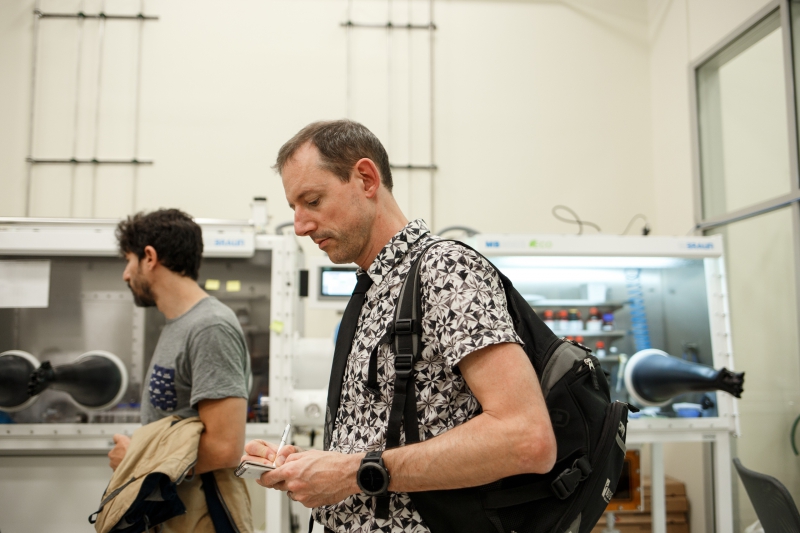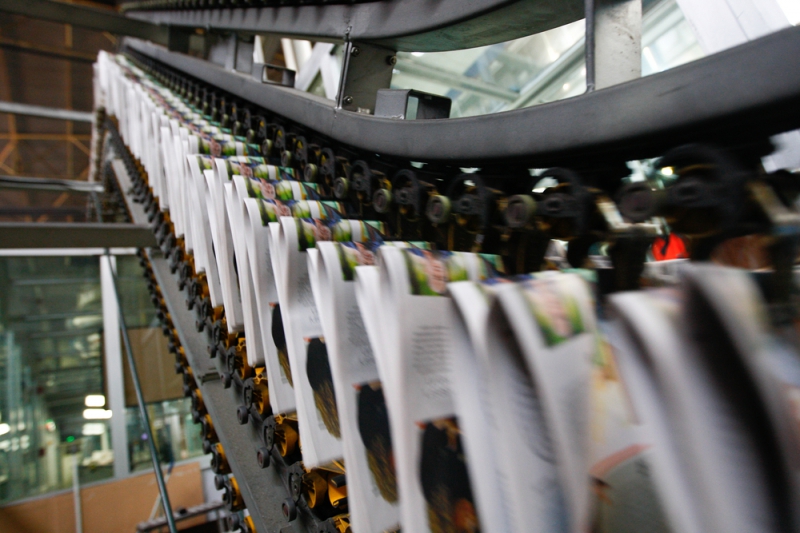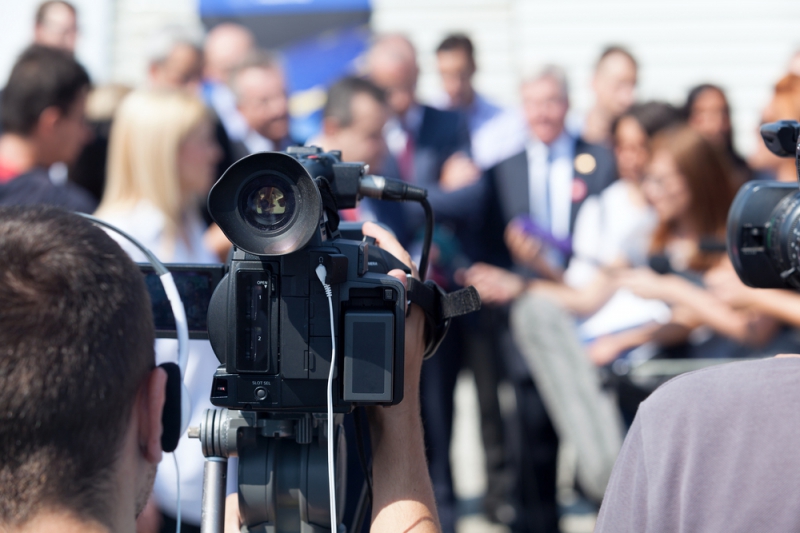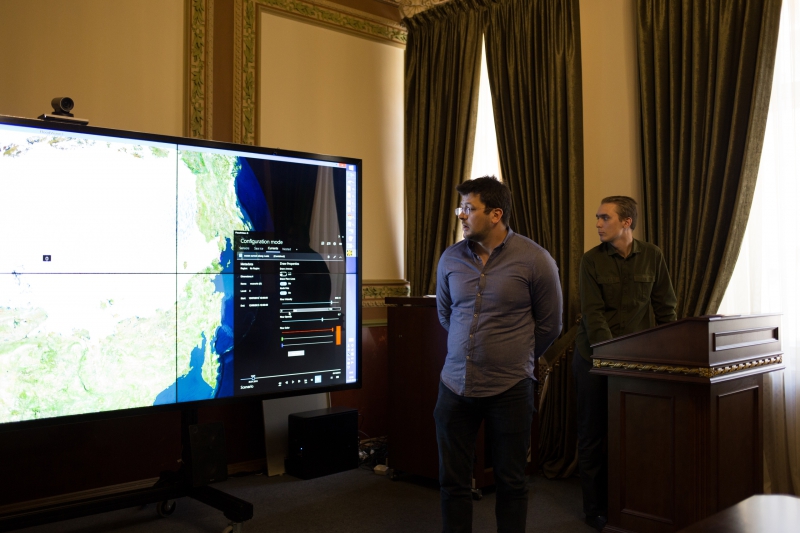First things first, why is promoting science so important? To my mind, there are several key reasons. It’s publicity, promotion of your ideas, getting a good reputation with the media, networking, offering an alternative approach and getting a new profession. Let's consider every of them.
Today, there is a number of researchers who are recognized more as science communicators rather than scientists. They often give lectures, sometimes for free, sometimes in return for a fee. This depends on a scientist's needs, their popularity and relevance. Still, I want to note straight off that businesspeople and scientists who lean towards mysticism are a lot better at wheedling high honoraria. So if you are a serious scientist, this is not the easiest way to make money, though it's still an option.
On the bright side, giving lectures and communicating with the media will definitely help you expand your network of acquaintance. And this is really important, as you never know what awaits you in the future. For example, during my school years I thought that classes in Russian and Literature were a waste of time, and it's Physics and Maths that were my thing. I majored in Physics, did a PhD, but became a journalist in the end. I think I should've maybe written more essays.

Why you need a good reputation with the media
Just recently, there was this event that sparked a wide response. On Friday, Michael Calvey was arrested, and tried on Saturday. Let's focus on him for a while. If an American works in debt collection in Russia, what do you think will be the opinion of him? It's highly unlikely to be positive. In my experience, even those who never had to deal with debt collectors think poorly of them.
By all means, we shouldn't be saying that Mr. Calvey was simply doing his job, and it just happened that he had a debt collection agency in his investment portfolio. He was also a co-owner of Bank Vostok. His partner in business, another stockholder, brought a case to court contesting the value of this debt collection agency.
Still, something unexpected turned up: for the past 25 years, Michael Calvey helped grow such companies as Yandex, 1C, Avito and Vkusvill. And all of these companies are really grateful for his help. It is not a common occurrence, as oftentimes, the relations between a startup and an investor get complicated: an investor becomes unhappy with the startup’s profits, the startup is unhappy with its share, and so on. Nevertheless, many people, Yandex's co-founder Arkady Volozh included, stressed that they have always known Calvey as an honest man who never attempted to take control of and drain the companies he’s been working with.

If Calvey didn't have such a reputation with investors, if journalists didn't know that for 25 years he's been investing in companies without trying to “kill” them and offered them opportunities to grow, the media wouldn't be on his side. But in these circumstances, it's different. What's more, even the pro-governmental media is very neutral about this case.
Everyone has heard that the media is the fourth estate. Surely, that's an exaggeration, as even the entire democratic press couldn't bring down Trump. Press is definitely not a key force, but at the same time, it can help change the course of a case. For that reason, it's always important to speak out. Also, there's no harm in having some useful contacts and a story that you'll be known for, so that you won't be judged by your recent actions only.
So why do media need a Technology section? Even though most people are interested in dollar rates or world affairs, science news are ever popular. There's a lot of data to prove this, for instance the one I got from Lenta.ru a couple of years ago. Science can kindle public interest without thriving on disasters, wars and human grief.

How to contact a journalist
By mail, messengers, a phone call or by personal acquaintance. And which is best?
Personal acquaintance is the best way, the most valuable resource and thus the hardest way to go about it. But you always have to remember that every person has limited time. If you want to meet someone to discuss what you could conceivably do, this would be wasting their time, and such communication is better done remotely.
A phone call is great because you spend less time on discussing a topic. On the other hand, it distracts people from what they are doing. Just imagine that you are in your laboratory, working on a chain of reactions, and someone calls you to discuss something on the phone. I think you won't be happy about it. However, that depends on the person in question.
As far as I know, most prefer it when they are contacted via email or some messenger; older journalists prefer the former, younger ones prefer the latter. A direct call is best used in exceptional cases. And meeting in person is only good when you know that you already have something to discuss for the long run.

What's a newsbreak and what kind of news item you can offer to a journalist
Apart from reporting a discovery, you can also explain it or its history. Remember that it's every day that you do research. Therefore, even if you aren't the top professional in your field, you still know a lot more than your next journalist. You follow the news in your field, and you don't just understand the nature of a phenomenon but can also explain it. If you're a climate scientist, for instance, you can tell why it's getting colder in Russia at the time of global warming. You can do it far better than a journalist and thus help them focus on the important aspects. We all know either things that are common knowledge or things that have to do with our professional field. Don't forget that your profession is one of your most prized resources.
Also, do remember that people like to read about their country. Some media prefer writing about achievements, others focus on shortcomings. Still, stress the connection if you can. For example, you can mention an affiliation to a university or a researcher's origins. Geim and Novoselov are long considered foreign scientists, but we still like to hear that they come from Russia and were born in the Soviet Union.

Why limit your message to just 70 characters
Let's say you've just completed a wonderful project. How much time do you need to describe it? As I've already said, it is better to send an email or use a messenger app if you're contacting a journalist for the first time. Thus, you should think about describing the essence of your offer using as few words as possible. On the whole, you only have 70-90 characters: this is how many a person sees when they glance at an email or a message.
Editorial offices get a great many letters, and they just can't read every one of them. Surely, you won't fit your entire idea in just 70 characters, but it's most important to start with what's so new about what you've done. Then you can give the details, the current stage of your work and so on. By the way, you it's a good idea to do the same when writing to a grant committee or your colleagues. Just remember that you first write the essence in short, and then offer explanations. It's always good to have a short summary of your achievement in order to save both your and your colleagues' time.

Why you shouldn’t send your story to just everyone
Remember that different news outlets compete with each other, and if you want to draw their attention, you have to choose the ones you want to give your story to. This is called an exclusive, and you shouldn't break your arrangement with a news outlet. An exclusive is more likely to be published, much more than if you send the story to every outlet you know.
If you stayed your hand and failed to offer your story fast, you can expand on the consequences of your discovery. Let's say you've bred fluorescent ringed worms. You can explain what they can be used for.
Another option is to provide an image. Show these ringed worms, and your laboratory. Despite these news being a bit late, it will be still interesting to the television. You've already provided an image, and now they will come to shoot a video.

If you've done all of the above and you still want more, there are always printed media that are released the following day, week, or month. You can give your story to a printed media even after it was published on the internet, but you should mind that they will also want some additional exclusive information. For titles such as Forbes that would be something about money. Let's say you invented noninvasive sensors for blood sugar testing. The associated market is huge: that would be all people who have diabetes. For this reason, journalists will be interested in your invention even before you get your first investments. Such things happen if your discovery solves some really relevant problem.
Let's examine several specific cases that will help you tell about your discovery to the media.
Case: simplicity of narration
Oftentimes, newspaper articles are written by scientists. Research articles can be quite complex for a layperson to understand, as they mostly focus on some small advance made in your professional field. This is why you have to clearly explain why it's so important if you want it to be interesting to a wide audience. For one, you can focus on what has been done to walk the whole way from early prototypes to bona fide quantum computers.

Case: promptitude
If something is going on, and you want to speak about it to the media, you have to offer this information without delay. I wrote one of my columns 40 minutes after Kommersant released an article about the Agency for Strategic Initiatives planning to spent 10 billion rubles on teleportation. It sounded as if the government decided to develop a teleportation technology. Quite naturally, you got the feeling that lots of money will be spend on total nonsense. Still, specialists could understand that it was quantum teleportation that they've been writing about, which is possible, but the article didn't mention that. I was a freelancer then, and I quickly wrote an article that explained what it was about. I didn't know what will happen to these 10 billion, but I could still write about quantum teleportation.
Case: another reason to speak about your research
Articles like the one that was released by Kommersant and which I answered to are another good example of why you have to speak about your research. If you think that you'll be fine without the media's attention, you need to understand that someone will still learn about your research, and they may misinterpret it, publish information that is distorted, and you never know what this can lead to.

For example, some acquaintances of mine who focus on neurotechnology got into the following situation. They read impulses from a person's brain and experiment with using human-machine interaction to make prostheses move. A particular resource learned about it, and they thought: well, if you can read such signals, you can also "put" them into one's brain, and published an article which implied that they were creating zombies. That's some logic, isn't it? Nevertheless, the researchers were none the better for it, as no other resources published anything about their project, and the public got a wrong idea of it. That can be detrimental to one's work. So, if you don't want people saying that you are working on teleportation or some other nonsense, it's better if it’s you who explains the details.
Case: chasing hype
There are topics that are always hot. Life, death, money, and the problems of the universe. Still, when you are writing about such things, it's important that you don't push things too far. Hyping is always tempting, but you risk twisting every single thing possible when you are at it.

Case: review
You can always do a review. Check what’s happened at the last conference that you know of, or the results of a recent winter school. As you are related to this field, you can quickly enunciate the results and understand what they are about, and laypeople will benefit from a simpler explanation that you can offer.
Case: refutation
On one hand, it's nice to kindle your readers' interest, on the other, writing about some nonsense is just unseemly. So, when Brandenburg stated that a nuclear bomb had exploded on Mars, it wasn't even worth discussing. Is there even any reason to make sense of homeopathy or nuclear blasts on Mars? We've decided to go a different way and learn where it's all coming from. We wrote to 20 best planetary scientists concerning Brandenburg's statement, and got replies like “Why, we do so much interesting research, and you're asking us about this rubbish!” Still, we got lucky, and the last one to reply clearly explained how and where did Brandenburg lie. In the end, we got a great article.

So when you are communicating with journalists, don't forget these little tricks:
The golden rule: you can tell a good story with just a few words.
Time is of essence: approach news agencies at the earliest.
Also, mind the “Monday morning” rule. On Monday mornings, newsbreaks are few. So, if you really want to have your story published, send it on a Monday morning or on Sunday evening.
Enliven your story: offer a new angle by means of analysis or an interesting comment. You can also speak about the impact of your discovery or its backstory.
Local flavour: always stress any connection to the country you're writing for.





